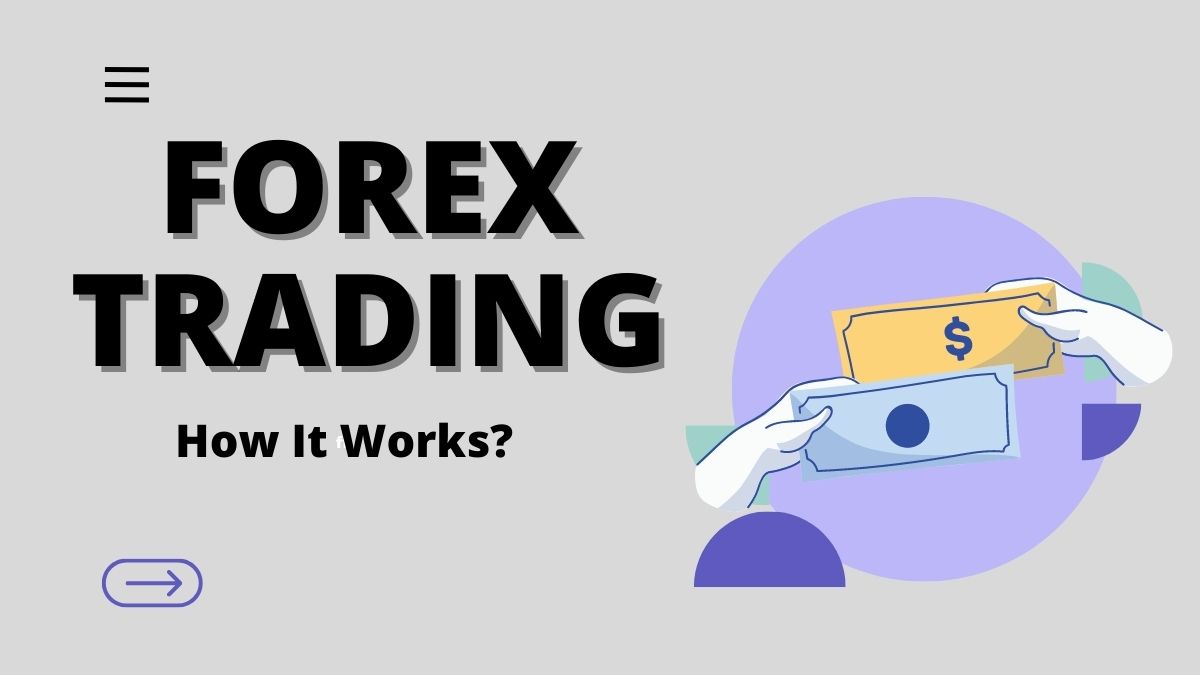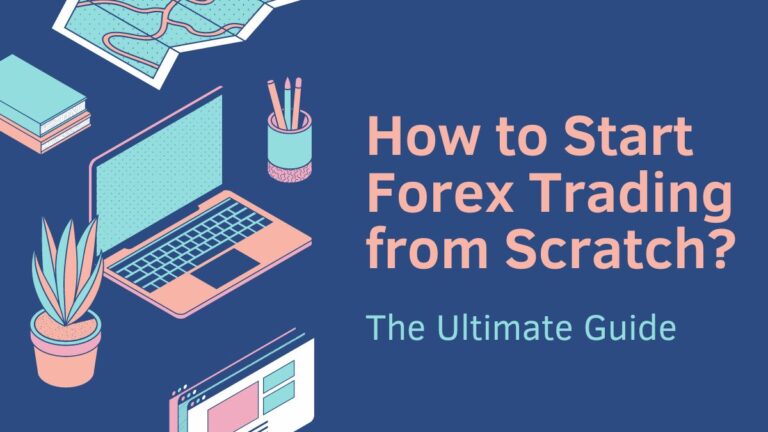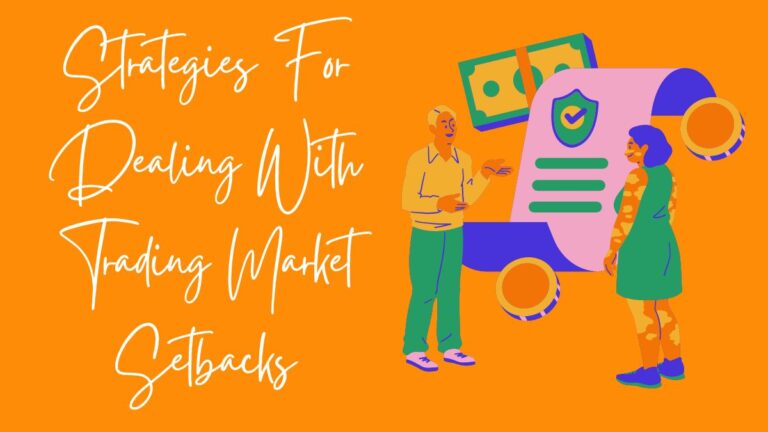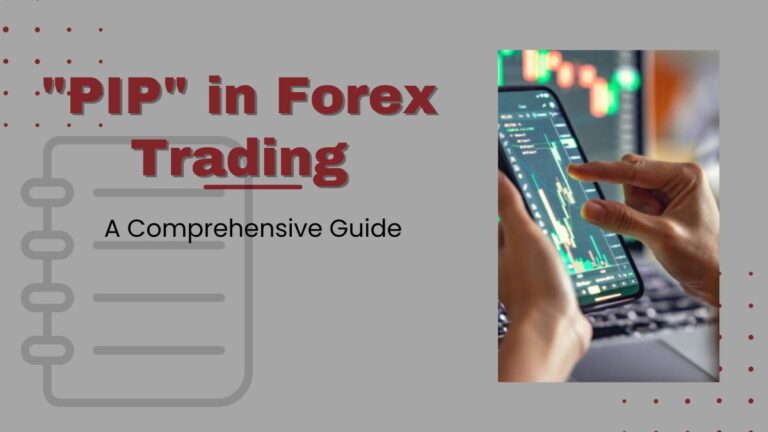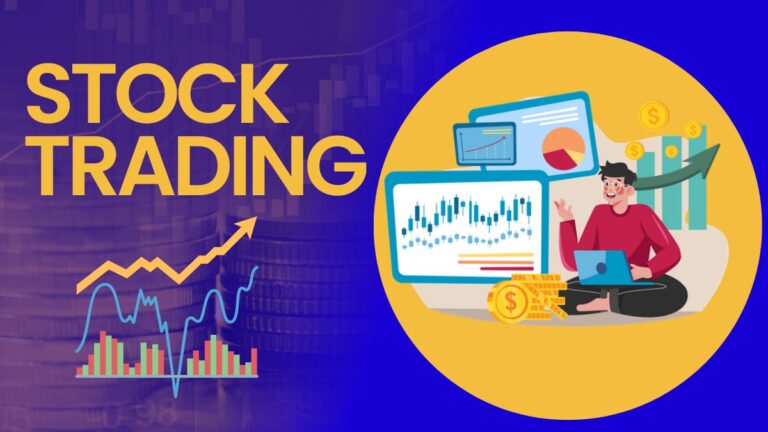The Beginner’s Guide to Forex Trading: Understanding the Basics and How It Works?

Welcome to the exciting world of Forex trading! If you’ve ever wondered how global currencies are bought and sold, or dreamt of making your mark in the fast-paced financial markets, then this beginner’s guide is going to be your ultimate companion.
In this post, we will break down the fundamentals of Forex trading, demystify complex terms, and equip you with all the knowledge you need to embark on your own profitable journey. So whether you’re a curious novice looking to dip your toes into currency trading or an aspiring trader seeking a comprehensive understanding of how it works – get ready for an immersive experience that will revolutionize the way you look at investing. Brace yourself as we unravel the mysteries behind Forex and set sail towards success!
Table of Contents
Introduction to Forex Trading
When it comes to forex trading, there is a lot to learn. But thankfully, the basics are relatively easy to understand. In this section, we will introduce you to the foreign exchange market and explain how it works.
The foreign exchange market, also known as the FX or forex market, is a global decentralized market for the trading of currencies. This means that currencies are traded between two parties in an over-the-counter (OTC) market. The FX market is the largest and most liquid financial market in the world, with traded values totaling more than $5 trillion per day.
One of the key benefits of forex trading is its high liquidity. This means that there are always buyers and sellers in the market, so you can trade at any time 24 hours a day during weekdays. Another benefit is its low transaction costs relative to other markets such as stocks and commodities.
Forex trading is a great way to diversify your investment portfolio as it offers exposure to a range of different currency pairs. So now that you know a little bit about the foreign exchange market, let’s take a look at how it works.
When you open a forex trading account, you will be asked to choose your base currency. This is the currency that you will be trading with and it should align with the currency in which you are paid. Once you have chosen your base currency, you are ready to start buying and selling different currency pairs.
Currency pairs are simply two different currencies that can be exchanged for each other at a given rate. For example, if the EUR/USD exchange rate is 1.20, this means that one euro can be exchanged for 1.20 US dollars. So when trading this pair, you will buy euros when the exchange rate is favorable and sell them off when it rises again.
As a trader, your goal is to make profits from taking advantage of fluctuating exchange rates by buying currencies when they are cheap and selling them off when they become more expensive. And since there are so many different currency pairs available in the market, there is always an opportunity to make profits from these fluctuations no matter what direction the market moves in!
What is Forex?
Forex, also known as foreign exchange or FX trading, is the buying and selling of currencies on the foreign exchange market. The foreign exchange market is a decentralized global marketplace where all sorts of investors, from large banks to small retail investors, can trade currencies. The main purpose of forex trading is to speculate on the movements of currency pairs, making profits when the value of one currency falls relative to another.
While forex trading may seem complex, it’s actually quite simple once you understand the basics. In this guide, we’ll cover everything you need to know about forex trading, including what it is, how it works, and how you can get started.
Given its decentralized nature, the forex market is by far the largest financial market in the world. With billions of dollars traded every day, it provides ample opportunities for traders looking to make a profit. Whether you’re new to trading or an experienced investor, learning how to trade forex can be a great way to diversify your portfolio and take advantage of global economic trends.
How Does Forex Trading Work?
Forex trading is the act of buying or selling currencies. Most forex trading is done on behalf of clients, but some people trade for themselves. When you trade forex, you are essentially buying one currency and selling another. The aim is to buy low and sell high, or to sell high and buy low. The value of a currency can change very rapidly, so forex trader need to be quick-thinking and able to react quickly to changes in the market.
The foreign exchange market is where currencies are traded. It is the largest market in the world, with a daily turnover of more than $5 trillion. That’s more than three times the size of the entire US stock market! Currencies are traded 24 hours a day, 5 days a week across major financial centers around the world. This makes forex one of the most accessible markets: you can trade at any time, day or night.
Most forex trading takes place on dealer platforms such as MetaTrader 4 (MT4) or cTrader. These platforms allow you to buy and sell currency pairs, track your account balance and history, and place orders without needing to speak to a human broker. You can also use forex signals services on these platforms to get automated trading recommendations from professional traders.
The Benefits of Forex Trading
Forex trading can be an extremely lucrative investment, offering investors the potential to make large profits. However, it is also a risky venture, and many investors lose money in forex trading. Before you begin forex trading, it is important to understand the risks and rewards involved and to consider whether you are suited to this type of investing.
There are several benefits of forex trading that make it an attractive option for investors:
- The forex market is one of the largest and most liquid markets in the world, meaning there is always high demand for currencies and plenty of opportunity for profit.
- Forex trading can be done online from anywhere in the world, 24 hours a day, 5 days a week. This makes it a convenient investment for busy people.
- You can start forex trading with relatively little capital. Unlike other investments such as property or stocks and shares, you don’t need a large amount of money to get started in forex trading.
- Leverage allows you to control a large amount of currency with relatively little capital. This can magnify your profits, but also your losses – so it’s important to use leverage carefully.
- Forex trading is highly liquid, meaning it’s easy to get in and out of positions quickly.
- Currency prices are predictable and can be charted over time, making it easier to analyse trends and make trading decisions.
Overall, forex trading can be a profitable and convenient way to invest, if you take the time to learn the basics and trade responsibly.
Essential Strategies for Successful Currency Trading
If you’re new to currency trading, there are some essential strategies you need to be aware of. These will help you make the most of your trading opportunities and avoid making costly mistakes.
- One of the most important things to remember in currency trading is that prices can fluctuate rapidly. It’s therefore crucial to stay up-to-date with the latest market news and developments. This will enable you to make informed decisions about when to buy and sell currencies.
- Another key strategy is to diversify your portfolio by investing in a range of different currencies. This helps to spread risk and maximise potential profits.
- It’s also important to have realistic expectations when currency trading. Remember that there is always a element of risk involved and losses are a possibility. By setting sensible goals, you’ll increase your chances of success in the long run.
- Finally, it’s wise to use risk management strategies and manage your position sizes carefully. As a beginner, it’s best to trade in smaller sizes until you become familiar with the market and develop a better understanding of how things work.
By following these essential strategies, you’ll have a great foundation when starting out in currency trading. With time and experience, you can then adjust your strategy accordingly and take on higher levels of risk if desired.
Common Pitfalls and Mistakes to Avoid
When it comes to forex trading, there are a few common pitfalls and mistakes that new traders often make. Avoiding these can help you get started on the right foot and improve your chances of success.
One mistake that’s often made is not having a clear idea of what you want to achieve. What are your goals? Are you looking to make a quick profit or build a long-term portfolio? Having a clear goal in mind will help you set realistic expectations and avoid making impulsive decisions.
Another mistake is not being prepared mentally and emotionally. Trading can be stressful, so it’s important to be in the right frame of mind before starting. Be sure to take some time to learn about the market and understand the risks involved. This will help you stay calm and focused when trading.
It’s also important to have realistic expectations about profits. Many new traders expect to make huge gains in a short period of time, but this is seldom the case. It takes time, patience, and discipline to be successful in forex trading. Don’t expect overnight success – instead, focus on steadily building your account over time.
Don’t let emotions get in the way of your trading decisions. Fear, greed, and other emotions can cloud your judgment and lead to impulsive decisions that can cost you money. Stay disciplined and stick to your plan – this will help you stay calm and focused when trading.
Getting Started with a Forex Broker
If you’re looking to get started in forex trading, then you’ll need to find a reputable broker. This can be a difficult and time-consuming process, but it’s essential if you want to trade successfully.
- The first step is to assess your trading goals. What are you looking to achieve? Are you simply wanting to make some extra money, or are you looking to build a career in forex trading? Once you know your goals, it will be easier to find a broker that suits your needs.
- Next, you need to research the different brokers available. Look at their features and services, and read reviews from other traders. It’s also important to compare fees and commissions before making a decision.
- Once you’ve found a few potential brokers, it’s time to start testing them out. Open a demo account and see how easy it is to use their platform and tools. See how quickly they execute trades and whether they provide good customer service.
- When you’re ready to start trading with real money, make sure that the broker offers a good deal on spreads and commissions. Look for a broker that provides good value for money. With these tips in mind, finding the right forex broker should be much easier.
Conclusion
Forex trading is an effective way to participate in the financial markets and take advantage of exchange rate movements to increase wealth. While it requires patience and due diligence, with education any beginning trader can improve their chances of successful trading. As you’ve seen in this article, there are many aspects to consider when beginning forex trading: from understanding how it works and different currency pairs, to choosing a broker or platform; all these elements can help any beginner get started confidently. With knowledge and practice, success in forex trading will come along!
